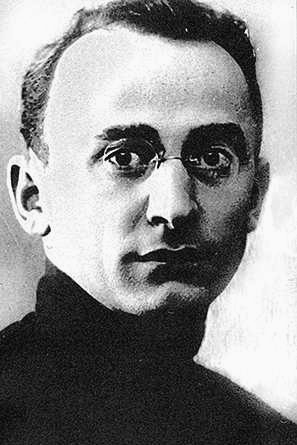Lavrentiy Pavlovich Beria (1899-1953) was the administrative political director of the Soviet atomic bomb project and chief of the USSR’s secret police.
Early Years
Beria was born in the present day Republic of Georgia on March 29, 1899.
In 1919 he graduated from the Baku Polytechnical School for Mechanical Construction. During his time at Baku, Beria joined the Bolshevik faction of the Communist Party and was actively engaged in counterintelligence and revolutionary activity in Georgia. Known for his violent, brutal, and ruthless measures, including kidnapping, torture, and rape, he advanced within the ranks of Georgia’s police organization, often by sabotaging the interests and positions of others, to become head of the secret police in his twenties.
In 1938, Stalin summoned Beria to Moscow and appointed him as deputy to the chief of the Soviet secret police, the NKVD. Within the course of a couple years, Beria orchestrated the execution of NKVD chief Nikolai Yezhov and then assumed his predecessor’s position.
Soviet Bomb Project
Stalin appointed Beria, notorious for his effective management abilities, to head the Soviet atomic bomb project on August 7, 1945, the day after the US detonated the “Little Boy” uranium bomb over Hiroshima. Serving as both the political director of the project and chief of the secret police, he created a special department within the NKVD called “Department S” to consolidate ongoing atomic research and development efforts. Beria’s double role granted him access to intelligence on the Manhattan Project collected from Russian spies such as Klaus Fuchs.
However, both Beria and Stalin distrusted the scientists working on the Soviet project. Their paranoia created an environment of terror and total secrecy. Those involved in the Soviet bomb project were constantly under surveillance. In particular, Beria was suspicious of Igor Kurchatov, the nuclear physicist who served as scientific director of the project.
Nevertheless, under Beria’s leadership, the Soviet Union successfully tested its first plutonium implosion bomb on August 29, 1949, code-named “First Lightning” (the United States gave it the code name “Joe-1,” after Stalin). Yuli Khariton, a prominent Russian physicist, wrote of Beria: “This man personified evil in the country’s modern history [and] possessed at the same time tremendous vigor and efficiency. It was impossible not to admit his intellect, willpower, and purposefulness. He was a first class manager able to bring every job to its conclusion.”
Demise
After the successful detonation of the Soviets’ first nuclear device, Beria’s repressive measures became increasingly unpopular and he was subject to growing suspicion within the Kremlin.
Following Stalin’s death in 1953, Beria was appointed as deputy prime minister and head of the Ministry of Internal Affairs. Many Soviet leaders, among them Nikita Khrushchev, feared Beria would use his control of the secret police to ultimately seize full power.
In the wake of the June 1953 uprising against the German Communist regime in East Berlin, Beria feared the USSR’s ability to retain the loyalty and allegiance of its Eastern European satellite states given the poor state of the Soviet economy. Seeking to preserve the financial solvency of the Soviet Union, he suggested Moscow enter into diplomatic negotiations with United States to peacefully bring an end to the Cold War. Seizing the opportunity, Soviet leadership under Prime Minister Georgy Malenkov accused him of conspiring with the American “imperialists.”
After being tried and convicted of treason, Beria was executed in Moscow on December 23, 1953.





